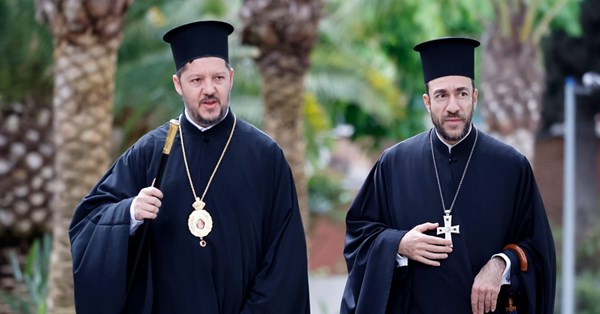ORTHODOX leaders paid tribute this week to Pope Francis, who was widely perceived as a bridge-builder committed to repairing the longstanding division between the Roman Catholic and Orthodox Churches.
Since the Russian invasion of Ukraine in 2022, the Pope’s efforts at peacemaking through religious diplomacy have drawn significant attention in Ukraine, not least from the Primate of Ukraine’s newly created independent Orthodox Church, Metropolitan Epiphany (Dumenko), who expressed his heartfelt condolences to Catholics.
He recalled the Easter urbi et orbi message in which the late Pope prayed for the “Easter gift of peace” for Ukraine. Metropolitan Epiphany, in his online message, emphasised the Pope’s persistent dedication to the “release of Ukrainian prisoners of war, as well as the return to Ukraine of children deported by the Russian authorities.”
Even in the light of the Russian war on Ukraine, the Pope deemed it essential to keep open lines of communication between Moscow and the Vatican, to support his humanitarian initiatives. Patriarch Kirill of Moscow recognised Pope Francis’s determination to build relationships with all sides, reflecting on the first ever meeting between a Russian Orthodox Patriarch and a pope, which took place in Cuba in 2016 (News, 19 February 2016).
“The historic first meeting . . . marked the desire of our Churches to heal ‘the wounds inflicted by conflicts of the distant and recent past’ and to ‘unite efforts in witnessing to the Gospel of Christ and the shared heritage of the Church of the first millennium,” Patriarch Kirill wrote in his letter to Cardinal Kevin Farrell, Camerlengo in the papal household.
This year is ecumenically significant as the Churches mark 1700 years of the First Ecumenical Council of Nicaea (News, 17 April). It had been planned that Pope Francis would commemorate this event with the Ecumenical Patriarch, Bartholomew of Constantinople, in Iznik, Turkey, next month.
Patriarch Bartholomew prayed for the repose of Pope Francis’s soul, describing him as “a genuine friend of Orthodoxy” with whom, “from the very moment of his ascent to the papal throne”, there was “fraternal friendship and collaboration for the good of our Churches, for their further rapprochement, and for the good of humanity”.

















